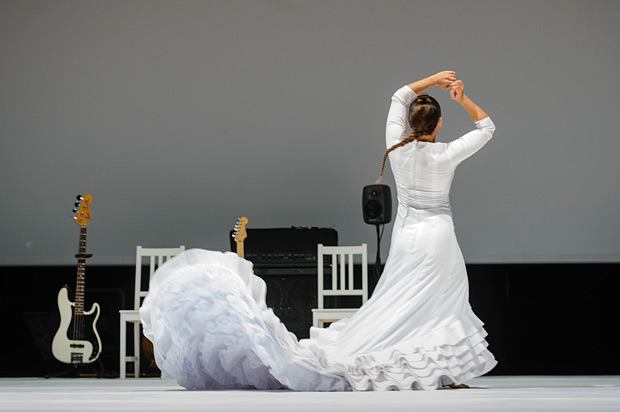
© Foteini Christofilopoulou. (Click image for larger version)
Rocio Molina
Fallen from Heaven (Caída del Cielo)
★★★★★
London, Barbican Theatre
12 October 2017
Gallery of pictures by Foteini Christofilopoulou
www.rociomolina.net
www.danceumbrella.co.uk
www.barbican.org.uk
The words “90 minutes, no interval” generally fill me with dread. It can, so often, lead to a barely controllable urge to be anywhere but that theatre seat for the concluding ten, twenty or even (on the very rare occasion) seventy minutes of the show. But, not so with the extraordinary force of nature that is Rocío Molina, who makes an hour-and-a-half disappear in an instant, which is all the more surprising given that some of her show is consumed in silence and even, from time to time, with little movement.
Molina is to flamenco as Akram Khan, Wayne McGregor and Crystal Pite are to ballet. She is a pioneer of flamenco nuevo, evolving her own contemporary language from the traditions of flamenco, which – as her bio, says – ‘respects its essence, but embraces the avant-garde’. Fallen from Heaven has all the elements of traditional flamenco: at the outset, a row of chairs anticipates the standard line-up of musicians (guitarist, singer, percussionists) and Molina first appears in a full length dress with long train (la bata de cola); but, look closer and all these familiarities are subtly different.
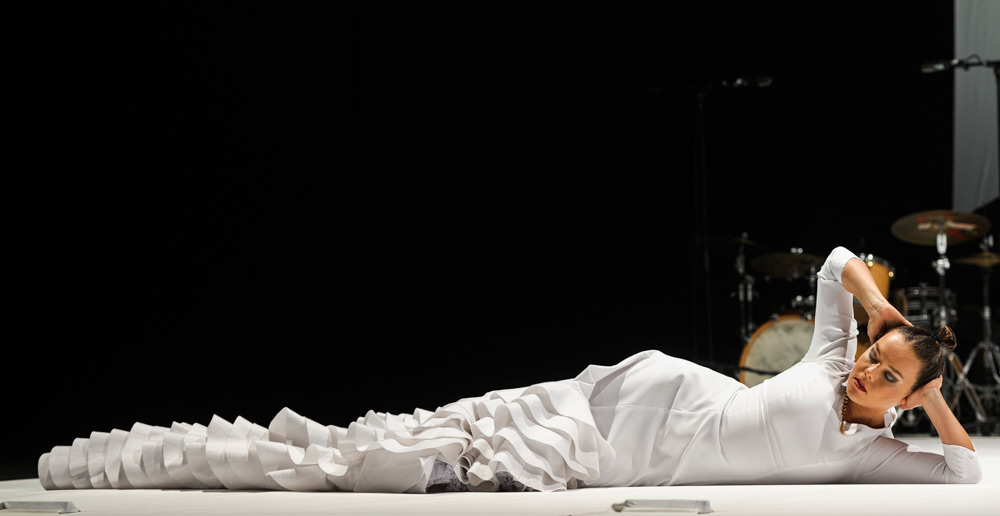
© Foteini Christofilopoulou. (Click image for larger version)
The usual lightweight, honey-coloured flamenco guitar stands upright alongside the unmistakeable claw-shaped, multi-coloured body of Stratocaster-style electric guitars and the wooden percussion boxes (cajónes) are dwarfed by a full-size, 5-piece drum set. When the quartet of musicians appear for their opening number (virtually the only time that Molina is not on stage), the anguished vocals of José Ángel Carmona – well-remembered from recent shows with Ángel Muñoz and Paco Peña’s Flamencura – is the only recognisable flamenco element amongst the electronic rock. Molina is also credited as the show’s musical director, with all original music composed by her excellent guitarist, Eduardo Trassierra.
Molina first appears in a gorgeous, ice-blue bata de cola, but when she dances, it is in silence and not with flamenco steps but soft, undulating contemporary movement, which includes a significant floor-based section that reveals, within the rich layers of her dress frills, that she is barefoot. In music and movement, this opening sequence sets out her stall for further surprises to come, concluding with perhaps the most startling coup de theatre imaginable for flamenco theatre.
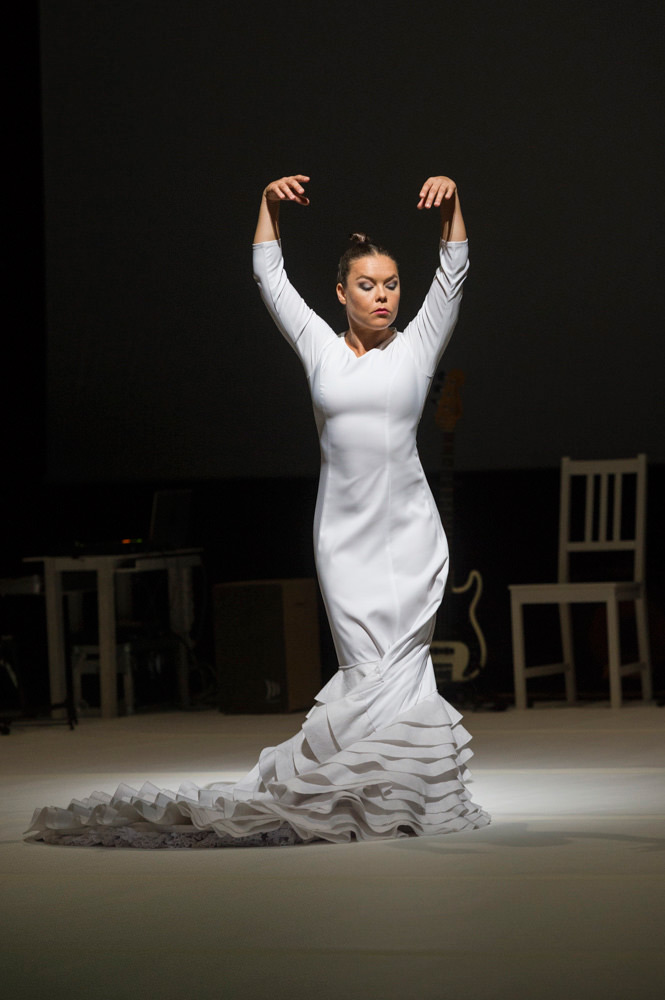
© Foteini Christofilopoulou. (Click image for larger version)
Another pioneer of the art, Manuel Liñan, crosses the boundaries of gender stereotypes by performing with el mantón (a long silk shawl) while cross-dressing in a bata de cola; Molina takes unusual use of the traditional flamenco dress a step farther, turning it into the means for a clever snippet of burlesque; baring all, courageously, in perhaps the first-ever flamenco striptease, albeit accomplished in the best possible taste, hands and arms cleverly preserving her modesty.
Molina dances in many styles, including floor-based rolls, hip-hop freezes, barefoot freestyle, even essaying the apparent uncontrolled frenzy of a rave; but, interspersed within this eclectic tapestry, she reminds us, frequently, of her primary skills as a bailaora, demonstrating an extraordinary technical virtuosity with intense, close, rhythmic control of her footwork, often slapping her body in time with the intricate and rapid zapateado and taconeo (feet and heel work); the swirling hip and spiralling spine of her elegant body rolls; and in the exquisite use of her arms, hands and fingers.
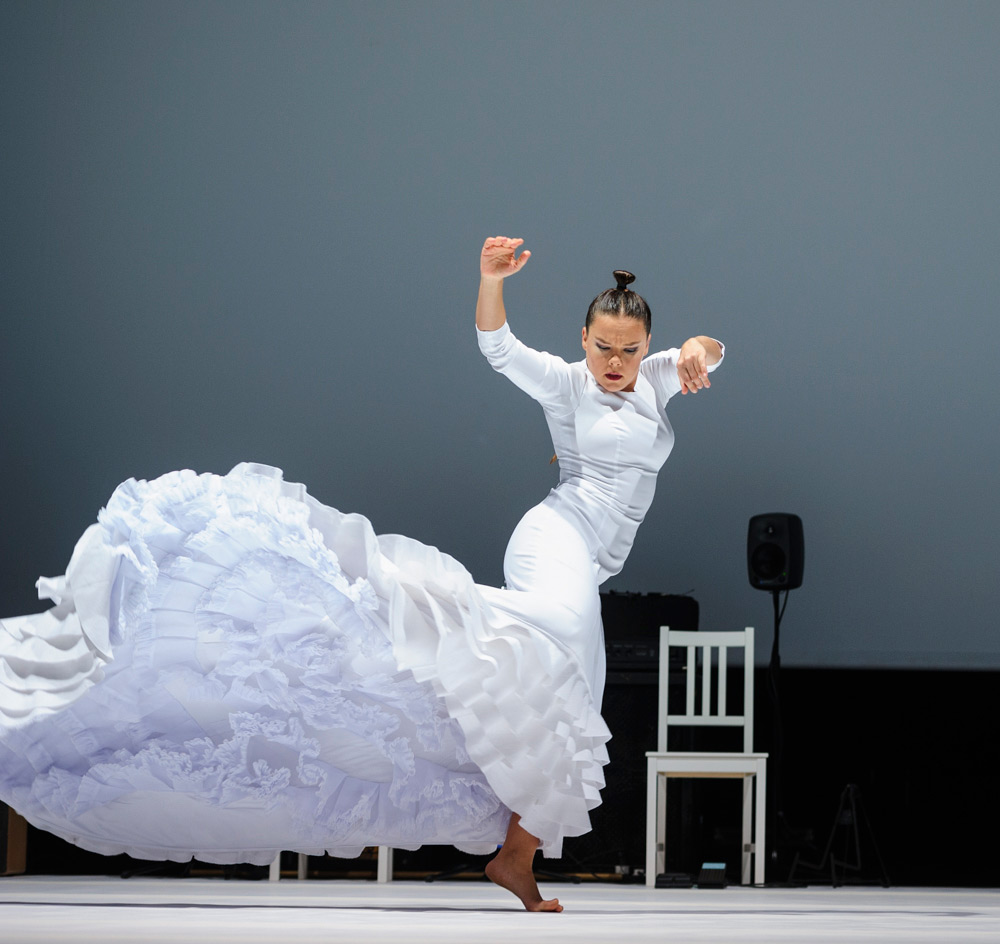
© Foteini Christofilopoulou. (Click image for larger version)
Although she is accompanied by four excellent musicians, it is abundantly clear that Molina is the only participant to have Fallen from Heaven in what is – most assuredly – a one-woman show. A headline bailaora would generally leave the stage for costume changes, several times during a theatrical show; these spaces being occupied by her musicians. Molina wastes no such time by changing onstage, the aforementioned bata de cola being tastefully swapped – with a little help from the musicians (her hands being otherwise, protectively, occupied) – for a golden, star-spattered, hooded robe that would not have looked out of place on a pugilist entering the ring (appropriate imagery since Molina is clearly as tough as any fighter).
Motifs of bizarre eroticism are also evident. Midway through the show, her percussionist, Oruco (José Manuel Ramos) downs tools and starts to eat a packet of crisps. The others follow suit but when Molina tries to join in, instead of a fried potato snack, she pulls a bondage outfit from the packet and wears it, on top of a cerise bra-top and shorts. Thus attired, another opened packet of crisps is somehow stuck onto the front of her leather thong and Molina’s attempts to reach down to pluck a handful of crisps from her crotch are continually thwarted by the men around her. When she finally escapes their attentions, she grabs crisps wildly, scattering them everywhere. Shortly thereafter, she steps into a box full of red paint and pulls on a plastic skirt with a long train to begin a period in which her movements leave a trail of red on the floor, the effect emphasised by real-time overhead film being projected on a large screen behind her. This pair of episodes is clearly replete with sex and gender metaphor.
And, in a scene that is compellingly sensual, Molina’s feet are then gently washed in an old-fashioned round, tin bowl by her servile drummer, Pablo Martín Jones, lovingly looking up into Molina’s eyes as he kneels at her feet, the sound of trickling water amplified for an even greater effect. After a cursory wipe with a towel, Jones fits Molina’s still-wet feet into yet another pair of flamenco shoes so that she can enthral us with one more coruscating solo.
Molina’s company is becoming a regular and very welcome feature of Dance Umbrella – that wonderful stalwart of the autumn dance calendar in London – having performed here in 2015 with the enchanting Bosque Ardora, for which she was nominated for an Olivier Award and won a special National Dance Award for exceptional artistry. Fallen from Heaven is a spectacular continuation of this remarkable artistic exploration, fed by Molina’s expansive imagination (credit also due to her co-artistic director and dramaturg, Carlos Marquerie) and a rare sense of theatrical innovation.

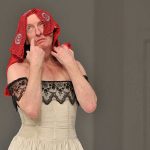
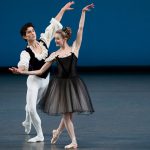
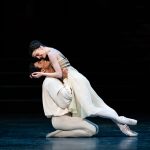
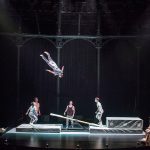


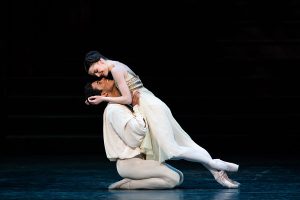
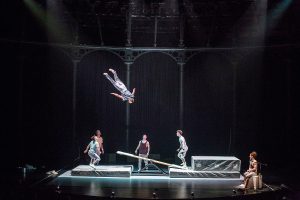
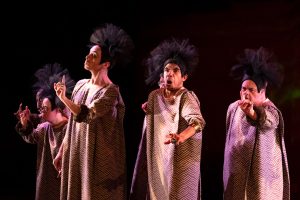
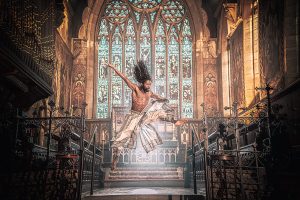

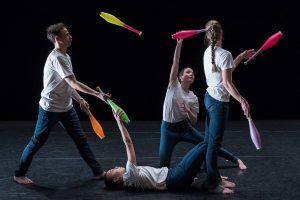
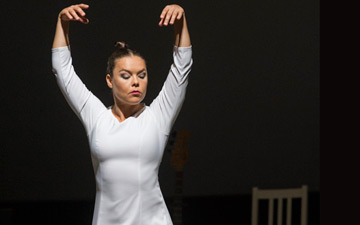
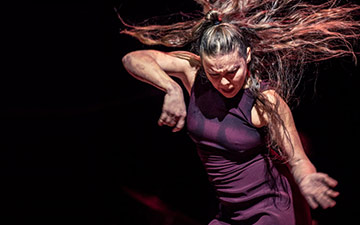
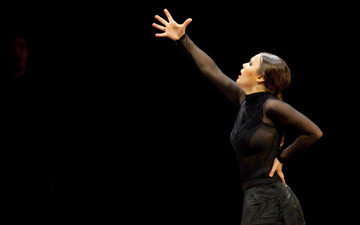
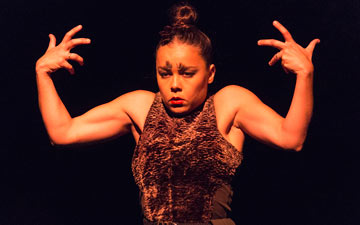
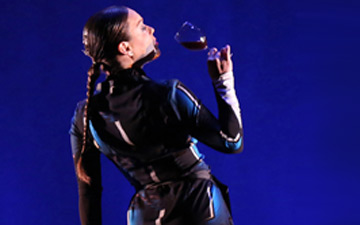
You must be logged in to post a comment.